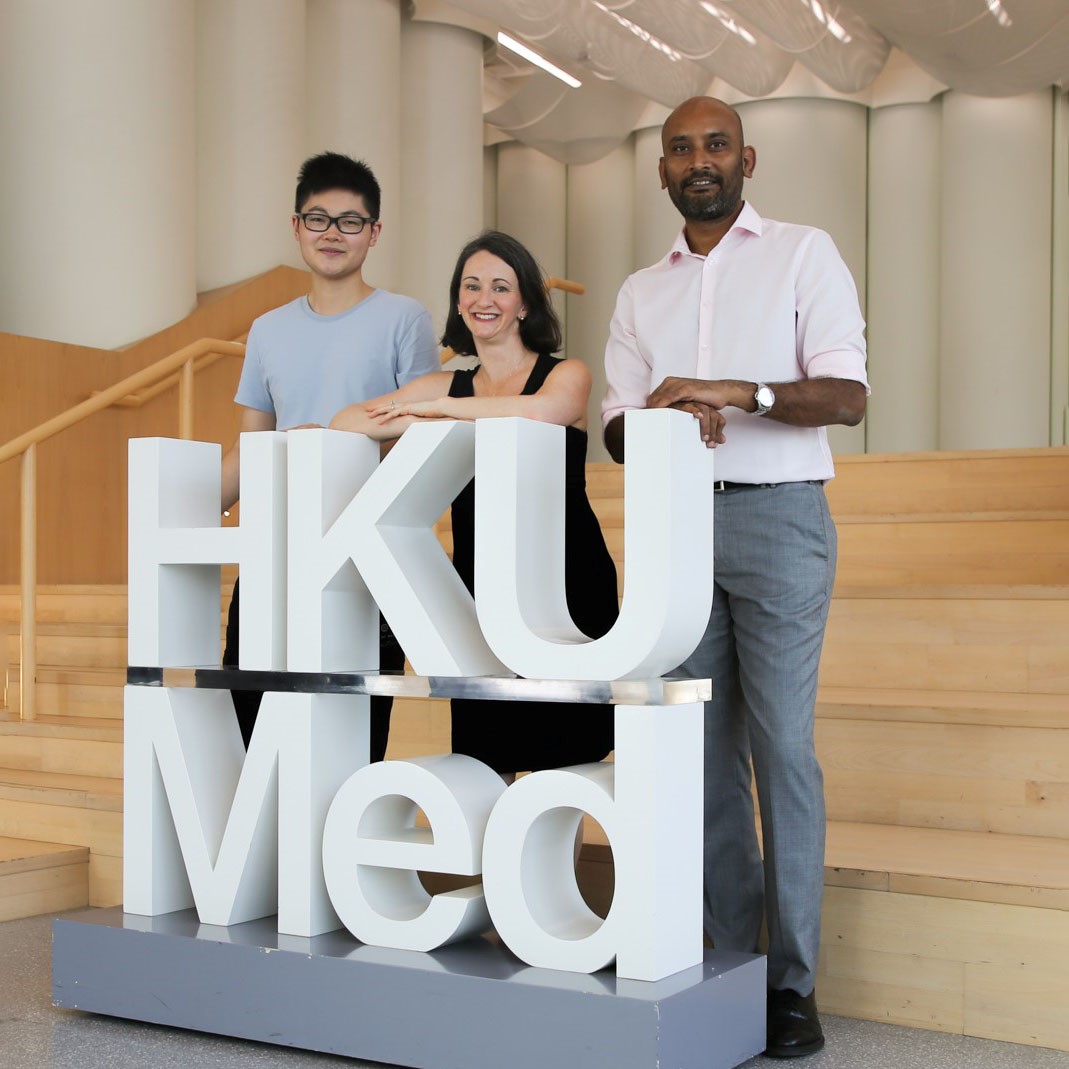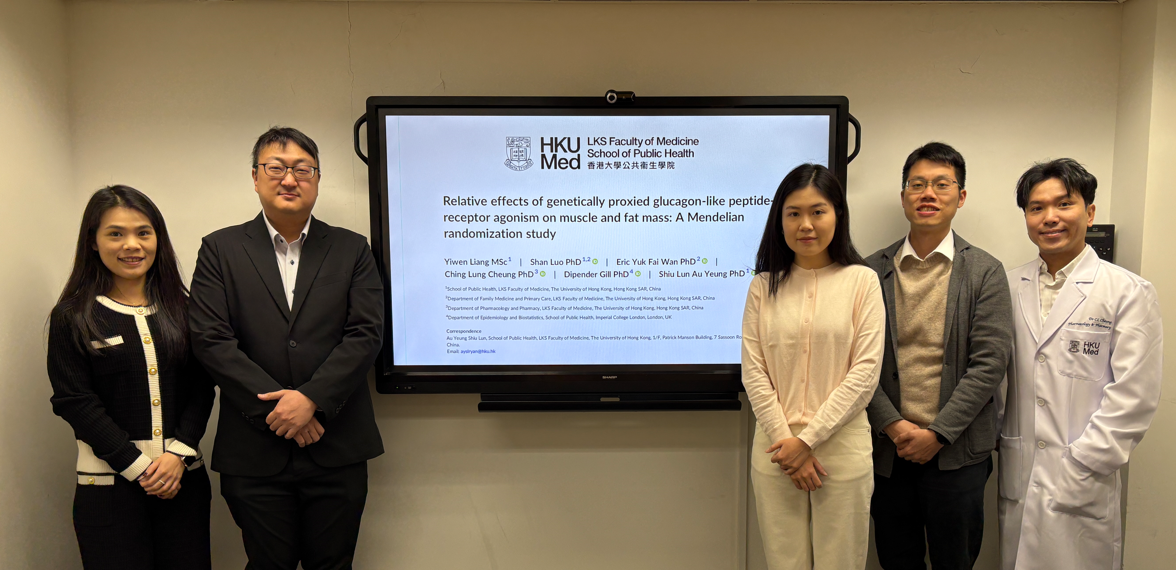e-Bulletin February 2025
MESSAGE FROM THE DIRECTOR |
Visual Credit: Drawn with Dall-E
This issue of our e-bulletin helps explain why 77% of our School’s respondents to the 2024 worklife survey agreed/strongly agreed, “I enjoy what I do at work”. There is so much meaning in what we have come together to do as a school. This issue is a snapshot of how some of our colleagues chose to address practical challenges in our field. A theme recurs of teams coming together to share their talent and create new ideas, courses, and shared ideas. Meaning is best created by working with others and drawing together.
As we reflect on many health challenges facing our world, we can be quite proud of past accomplishments and draw hope for what our work can bring for the future.
Professor David Bishai
Director and Clinical Professor
School of Public Health, The University of Hong Kong
RECOGNITION |
Professor Michael Ni and His Team Received the University’s Knowledge Exchange Award 2024
FAMILY Cohort Serving as a Health and Wellbeing Barometer for Hong Kong for over a Decade and Counting
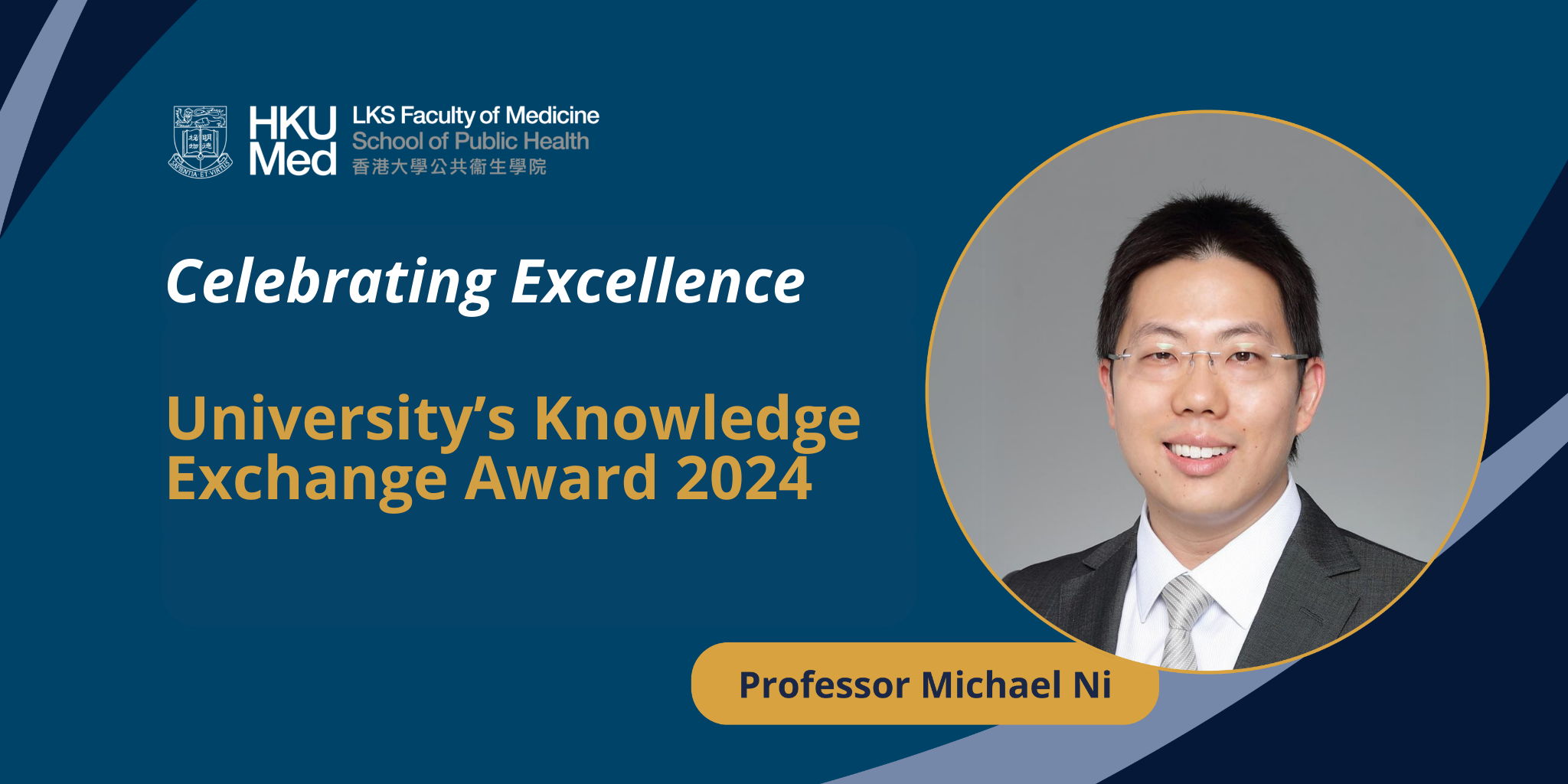
Professor Michael Ni, Clinical Associate Professor of our School, along with his team, has won the University’s “Knowledge Exchange (KE) Excellence Award 2024” with their project “A Health and Wellbeing Barometer for Hong Kong: Translational Impact Attained over A Decade and Counting”.
The KE Excellence Award is a university-level award to recognise outstanding KE accomplishment which has made significant economic, social, environmental or cultural impacts to benefit the society.
The FAMILY Cohort was the first large-scale programme in Hong Kong to track physical, mental, and social well-being since 2009. The cohort has served as a territory-wide health and wellbeing barometer, helping to inform policies to improve public health.
This award recognises Professor Ni and his team’s unwavering dedication in using public health science to serve the people of Hong Kong.
The School extends our hearty congratulations to Professor Michael Ni and his team on being recognised for their contribution.
Professor Vijaykrishna Dhanasekaran and His Team Awarded the HKU Research Output Prize 2023-24
Celebrating Excellence in Research Achievement
Professor Vijaykrishna Dhanasekaran and his team received the HKU Research Output Prize 2023-24 for their article titled “The episodic resurgence of highly pathogenic avian influenza H5 virus”.
The HKU Research Output Prize aims to recognise, honour and reward the best research output published or created in the preceding calendar year.
Led by Professor Dhanasekaran, Associate Professor of our School, the team# examined the changing origins and trends of highly pathogenic avian H5 outbreaks using epidemiological data collected by the Food and Agricultural Organization of the United Nations and the World Organisation for Animal Health between 2005 and 2022. They analysed more than 10,000 whole viral genomes to identify significant shifts in the global distribution of H5 virus outbreaks. They discovered the rising importance of viral reassortment in wild birds whose migration patterns could spread new viral variants around world. The findings have been published in the prestigious journal Nature, accessible here.
#Xie, Ruopeng*, Edwards, Kimberly M.*, Wille, Michelle, Wei, Xiaoman*, Wong, Sook San*, Zanin, Mark*, El-Shesheney, Rabeh, Ducatez, Mariette, Poon, Leo L.M.*, Kayali, Ghazi, Webby, Richard J., Dhanasekaran, Vijaykrishna* “The episodic resurgence of highly pathogenic avian influenza H5 virus.” Nature 622, no. 7984 (2023): 810-817.
*Members of SPH
The School extends our hearty congratulations to Professor Vijaykrishna Dhanasekaran and his team on this well-deserved recognition.
We are pleased to share the news that Professor Michael Chan has been promoted to Professor with effect from January 2025.
Our School has been Professor Chan’s home since he joined as Post-doctoral Fellow in infectious diseases at HKUMed in 2004 after receiving his PhD in Medical Science from the Chinese University of Hong Kong. He is a world expert on understanding the pathogenesis of influenza viruses and coronaviruses. Louis Pasteur’s dictum, “the microbe is nothing, the terrain is everything” rings true for Professor Chan, who has made his career studying the terrain for infections by developing human organoids of lung tissue into platforms for risk assessment, and exploring therapeutic options for acute lung injury.
His scientific contributions have had a major impact, ranking him among the “top 1% most-cited international scientists” and propelling his papers into top journals. But what truly stands out is his unwavering commitment to making a difference here in Hong Kong. From spearheading impactful initiatives like the “Little Dr Flu” programme to advising global organisations, Professor Chan’s work has touched countless lives and will continue to shape the future of public health.
The School extends our warmest congratulations to Professor Michael Chan on this remarkable achievement. We are excited to see all that he will continue to accomplish in this new role!
World Cancer Day
United by Unique
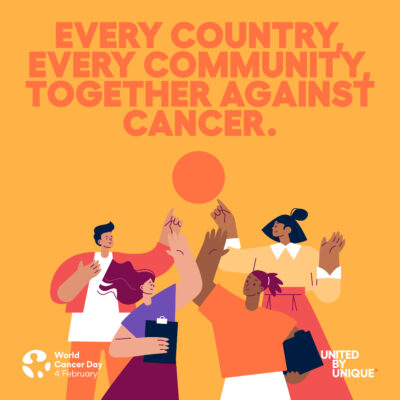 Visual credit: Union for International Cancer Control (UICC)
Visual credit: Union for International Cancer Control (UICC)
February 4 marks World Cancer Day, an international day dedicated to raising awareness about cancer. This day promotes prevention, detection, and treatment of cancer while mobilising global action. The theme for World Cancer Day 2025, “United by Unique”, emphasises the importance of placing people at the center of cancer care and recognising the unique stories behind each diagnosis.
Our School is committed to supporting cancer care through research and public health initiatives to enhance cancer outcomes. Central to our efforts is the Jockey Club Institute of Cancer Care (JCICC), established in 2018 by HKUMed with support from the Hong Kong Jockey Club Charities Trust. Led by Professor Wendy Lam, our Associate Professor and Head of Division of Behavioural Sciences, the JCICC is Hong Kong’s first cancer-specific rehabilitation research and service centre, offering patient-centered care tailored to local needs. Its pioneer core programmes include a nurse-led symptom clinic, a community-based cancer survivorship clinic, and supportive care clinics, addressing critical gaps in cancer care. The nurse-led symptom clinic screens symptoms for around one-third of Hong Kong’s 20,000 annual cancer survivors, with plans to expand seven oncology units funded by Health and Medical Research Fund (HMRF). This initiative aims to serve as an exemplar for other Hospital Authority oncology units. The survivorship clinic has supported over 1,000 participants since 2020, providing lifestyle modifications and self-management advice.
Research remains a cornerstone of our School’s work. Our research focuses on genetic, environmental, and lifestyle factors in Asian cancer risk, utilising big data and AI for early detection. Prevention campaigns target tobacco use, unhealthy diets, and physical inactivity while promoting screenings and vaccines like HPV. Studies address issues including fear of cancer recurrence and sleep disturbances, with interventions like Conquer Fear and CBT-I trials. Doctoral student Julia Chan is working on sleep disturbances in cancer survivors and collaborating with Dr Danielle Ng, Research Assistant Professor of our School, on an CBT-I intervention, which contribute to local and global advancements in psycho-oncology practices. Professor Wendy Lam, also the President of the International Psycho-Oncology Society (IPOS), leads integration of psychosocial care into cancer treatment on a global scale. These works underscore our researchers’ dedication to patient-centered care and driving meaningful change.
Learn more from our researchers’ publications:
- Implementing a nurse-led screening clinic for symptom distress with community-based referral for cancer survivors: A feasibility study
Psycho-Oncology
Wendy Wing Tak Lam*, Danielle W. L. Ng*, Richard Fielding*, Vivian Sin, Catherine Tsang, Wendy W. L. Chan, Chi Chung Foo, Ava Kwong, Karen K. L. Chan
- Trajectories of sleep disturbance in cancer survivors during the first 2 years post-treatment
Sleep
Julia Chan*, Danielle Wing Lam Ng*, Qiuyan Liao*, Richard Fielding*, Inda Soong, Karen Kar Loen Chan, Conrad Lee, Alice Wan Ying Ng, Wing Kin Sze, Wing Lok Chan, Victor Ho Fun Lee, Wendy Wing Tak Lam*
- Comparing the experiences of cancer survivors living with sleep disturbances between differing levels of psychological distress: a qualitative study
BMC Psychiatry
Julia Chan*, Danielle Wing Lam Ng*, Richard Fielding*, Wendy Wing Tak Lam*
EVENT SNIPPETS |
Hong Kong Jockey Club Global Health Institute (HKJCGHI) Inaugural Symposium
Advancing Global Health Through Scientific Innovation
The Hong Kong Jockey Club Global Health Institute (HKJCGHI) successfully hosted its inaugural symposium on “Advancing Global Health Through Scientific Innovation” on January 7, 2025. The event attracted over 110 participants, including academics and researchers from both the public and private sectors worldwide.
The symposium commenced with an opening ceremony by Professor Chak-sing Lau, Dean of Medicine, HKU; Professor Leo Poon Lit-man, Co-Director of HKJCGHI, Daniel C K Yu Professorship in Virology, Chair Professor of Public Health Virology and Head of Division of Public Health Laboratory Sciences from the School of Public Health, LKS Faculty of Medicine (HKUMed) and Associate Dean (Human Capital) of HKUMed; and Professor Florian Marks, Co-Director of HKJCGHI and Deputy Director General of Epidemiology, Public Health, Impact, and Clinical Development (EPIC), International Vaccine Institute (IVI).
In his welcoming address, Professor Chak-sing Lau highlighted the collaborative efforts between HKU, IVI, and the University of Cambridge (UCAM), generously supported by the Hong Kong Jockey Club Charities Trust, to advance global health initiatives. Drawing on lessons from COVID-19, SARS, and bird flu, Professor Leo Poon Lit-man emphasised the importance of pandemic preparedness, and the HKJCGHI’s dedication to impactful strategies across various domains. Furthermore, Professor Florian Marks reiterated the commitment of HKJCGHI to enhancing global awareness and capacity for pandemic preparedness through symposia such as this that bring together top experts in the field.
Led by esteemed scientists, the keynote speeches and panel discussions focused on urgent health challenges and pandemic preparedness. The topics included CEPI’s 100-Day Mission, advancements in vaccine development using AI, evolution and challenges of pneumococcal vaccines, insights into systems human immunology and immune health, and the importance of real-world effectiveness data in vaccine studies.
Notable keynote speakers included Scientific Advisory Board Members of HKJCGHI, namely Dr Jakob Cramer, Director of Clinical Development, Coalition for Epidemic Preparedness Innovations (CEPI); Dr Rino Rappuoli, Scientific Director, Fondazione Biotecnopolo di Siena; Dr George Siber, Adjunct Professor of Medicine, Johns Hopkins University School of Medicine; and Dr John Tsang, Director, Yale Center for Systems & Engineering Immunology, Yale University. Dr Birkneh Tadesse, Associate Director General, EPIC unit from IVI, also shared insights on the epidemiology and research work on Mpox.
The symposium marked a significant milestone for HKJCGHI, bringing together leading experts to advance global health and pave the way for a healthier future.
IN THE MEDIA |
HKUMed Research Finds Genetic Evidence that GLP1R Agonists Reduce Much More Fat Mass Than Muscle
Using Genetics to Gain Insights into Drug Target Effects
A research team from our School has found genetic evidence that glucagon-like peptide-1 receptor (GLP1R) agonist, a class of medications for treating type 2 diabetes (T2D), reduce more body fat than they do muscle mass. This finding addresses recent concerns that GLP1R agonists might cause weight loss primarily by reducing muscle mass. The research findings were published in Diabetes, Obesity, and Metabolism (link to publication).
GLP1R agonists mimic the action of the glucagon-like peptide-1 hormone, crucial for blood sugar regulation, making them popular for T2D and obesity treatment. Concerns arose about potential muscle loss leading to frailty or sarcopenia during weight reduction. By analysing genetic data from over 800,000 Europeans, researchers identified a genetic variant (rs877446) associated with lower BMI, similar to GLP1R agonists’ effects.
This variant was linked to reduced body fat and lean mass, including whole-body fat-free mass and trunk fat-free mass. Although muscle mass decreased, body fat reduction was more significant. The study revealed a larger decrease in whole body fat mass compared to muscle mass, clarifying the impact of GLP1R agonists on body composition.
“This study highlights the use of genetics in understanding medication effects, especially when corresponding clinical experimental evidence is limited,” said Professor Ryan Au Yeung Shiu-lun, Assistant Professor of our School. “Genetic insights can guide us in making informed decisions about treatments and their impact on health.”
The study was led by Professor Au Yeung and Dr Dipender Gill, Clinical Research Fellow in the Department of Epidemiology and Biostatistics at the School of Public Health of Imperial College. Liang Yiwen, a PhD student of our School was the first author of the study. Other research team members from HKUMed included Professor Eric Wan Yuk-fai and Dr Luo Shan from the Department of Family Medicine and Primary Care, School of Clinical Medicine; and Professor Cheung Ching-lung from the Department of Pharmacology and Pharmacy.
NEXT READ |
Professor David Montero’s New Book “The Physiology of Aerobic Capacity in Women”
A Deep Delve into Women’s Exercise Physiology
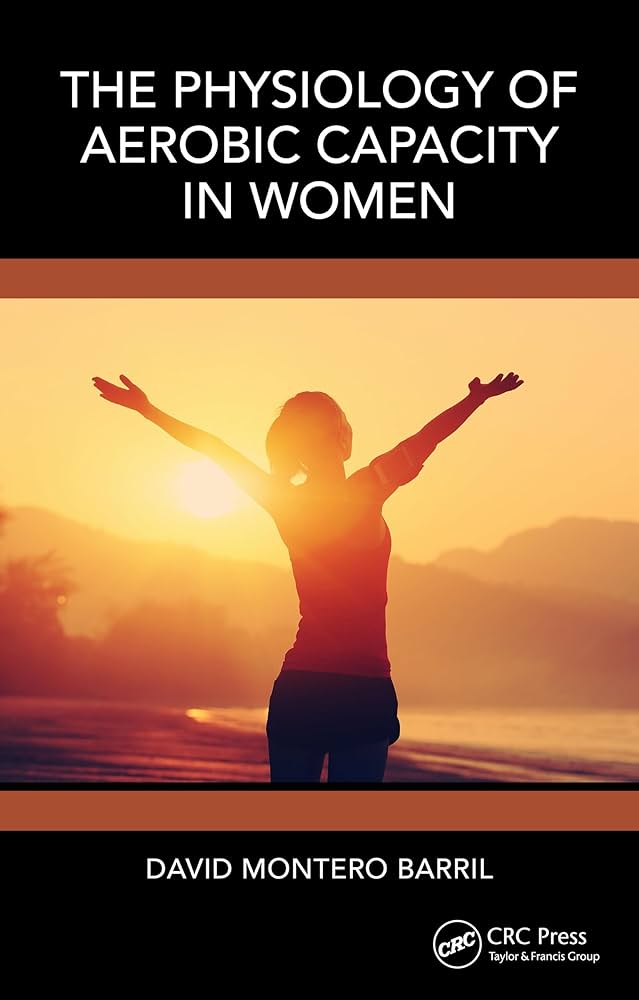
We are excited to announce the release of Professor David Montero‘s latest book, “The Physiology of Aerobic Capacity in Women”, a comprehensive exploration of the limitations and capabilities of exercise capacity in women. This compelling read delves into female physiology from the perspectives of respiratory, circulatory, skeletal, body composition, and training adaptations.
Professor Montero’s book gradually emerged as a result of a myriad of questions about how the human body works. After over a decade of research in human physiology, Professor Montero realised that current knowledge, as presented in textbooks, was complacent and far from sound research. This book tackles pressing questions about doping and innovative mechanisms in exercise theory and practice. Drawing from his extensive first-hand research experience, Professor Montero provides readers with new and realistic perspectives on women’s ability to perform exercise, including both positive and negative aspects.
The book presents research-based findings on the cutting-edge topic of women’s exercise capacity. It is written in an accessible manner and packed with science-based insights, and offers an overarching view of various medical disciplines that are essential in evaluating women’s exercise capacity. This book is a must-read for anyone interested in kinesiology, integrative physiology, clinical science, general science, and the sociology of sports. It offers valuable insights that will captivate both scholars and enthusiasts alike.

The following are research papers published by SPH researchers in December 2024 and January 2025:
Investigating parental perceptions of respiratory syncytial virus (RSV) and attitudes to RSV vaccine in Jiangsu, China: Insights from a cross-section study
Vaccine
Wang, Qiang; Yang, Liuqing; Li, Lan; Xiu, Shixin; Yang, Min; Wang, Xuwen; Shen, Yuan; Wang, Weibing; Lin, Leesa*
Relative effects of genetically proxied glucagon-like peptide-1 receptor agonism on muscle and fat mass: A Mendelian randomization study
Diabetes, Obesity and Metabolism
Liang, Yiwen*; Luo, Shan*; Wan, Eric Yuk Fai; Cheung, Ching Lung; Gill, Dipender; Au Yeung, Shiu Lun*
The mediating role of accelerated biological aging in the association between household air pollution from solid cooking fuels and neuropsychiatric disorders
Ecotoxicology and Environmental Safety
Tang, Rui; Wu, Haisheng*; Jiang, Ling; Zhou, Jie; Gao, Xia; Zheng, Jiazhen; Tang, Ya-Ping; Tang, Mingxi
Durability for 12 months of antibody response to a booster dose of monovalent BNT162b2 in adults who had initially received 2 doses of inactivated vaccine
Vaccine
Shiu, Eunice Y.C.*; Cheng, Samuel M.S.*; Martín-Sánchez, Mario*; Au, Niki Y.M.*; Chan, Karl C.K.*; Li, John K.C.*; Fung, Lison W.C.*; Luk, Leo L.H.*; Chaothai, Sara*; Kwan, Tsz Chun*; Ip, Dennis K.M.*; Leung, Gabriel M.*; Poon, Leo L.M.*; Peiris, J.S. Malik*; Leung, Nancy H.L.*; Cowling, Benjamin J.*
A global collaborative comparison of SARS-CoV-2 antigenicity across 15 laboratories
Viruses
Brangel, Polina; Tureli, Sina; Mühlemann, Barbara; Liechti, Nicole; Zysset, Daniel; Engler, Olivier; Hunger-Glaser, Isabel; Ghiga, Ioana; Mattiuzzo, Giada; Eckerle, Isabella; Bekliz, Meriem; Rössler, Annika; Schmitt, Melanie M.; Knabl, Ludwig; Kimpel, Janine; Tort, Luis Fernando Lopez; de Araujo, Mia Ferreira; de Oliveira, Any Caroline Alves; Caetano, Braulia Costa; Siqueira, Marilda Mendonça; Budt, Matthias; Gensch, Jean-Marc; Wolff, Thorsten; Hassan, Tarteel; Selvaraj, Francis Amirtharaj; Hermanus, Tandile; Kgagudi, Prudence; Crowther, Carol; Richardson, Simone I.; Bhiman, Jinal N.; Moore, Penny L.; Cheng, Samuel M. S.*; Li, John K. C.*; Poon, Leo L. M.*; Peiris, Malik*; Corman, Victor M.; Drosten, Christian; Lai, Lilin; Hunsawong, Taweewun; Rungrojcharoenkit, Kamonthip; Lohachanakul, Jindarat; Sigal, Alex; Khan, Khadija; Thiel, Volker; Barut, G. Tuba; Ebert, Nadine; Mykytyn, Anna Z.; Owusu Donkor, Irene; Aboagye, James Odame; Nartey, Prince Adom; Van Kerkhove, Maria D.; Cunningham, Jane; Haagmans, Bart L.; Suthar, Mehul S.; Smith, Derek; Subissi, Lorenzo
Revisiting cost-effectiveness of folic acid supplementation in primary stroke prevention in China: considering vitamin B12 deficiency masking issue
BMC Public Health
Chen, Xiyin*; Bishai, David*
EGHRIN conclusions on pandemic preparedness: no whole-of-society approach without society
BMC Health Services Research
Marie, Stockman; Antonio, Plasència; Heidi, Larson; Leesa, Lin*; Ana, Antic; Janharmen, Drost; Guenter, Froeschl; Jolene, Skordis; Anne-Mieke, Vandamme
Digital rehabilitation program for breast cancer survivors on adjuvant hormonal therapy: a feasibility study
Cancers
Chan, Wing-Lok; Wong, Yat-Lam; Tai, Yin-Ling; Liu, Michelle; Yun, Bryan; Zhang, Yuning; Hou, Holly Li-Yu; Kwong, Dora; Lee, Victor Ho-Fun; Lam, Wendy Wing-Tak*
Reducing antibiotic use with diarrhoeal vaccines
The Lancet Global Health
Leung, Kathy*; Wu, Joseph T*; Marks, Florian
Global unmet psychosocial needs in cancer care: health policy
eClinicalMedicine
Bergerot, Cristiane; Jacobsen, Paul B.; Rosa, William E.; Lam, Wendy Wing Tak*; Dunn, Jeff; Fernández-González, Loreto; Mehnert-Theuerkauf, Anja; Veeraiah, Surendran; Li, Madeline
Determination of T cell response against XBB variants in adults who received either monovalent wild-type inactivated whole virus or mRNA vaccine or bivalent WT/BA.4-5 COVID-19 mRNA vaccine as the additional booster
International Journal of Infectious Diseases
Tang, Yun Sang; Tan, Chee Wah; Chong, Ka Chun; Chen, Chunke; Sun, Yuanxia; Yiu, Karen; Ling, Kwun Cheung; Chan, Ken K.P.; Peiris, Malik*; Mok, Chris Ka Pun; Hui, David S
Remarks:
- This list is compiled by searching in Scopus using the keywords “School of Public Health, LKS Faculty of Medicine, The University of Hong Kong” for December 2024 and January 2025
- * Member of School of Public Health, The University of Hong Kong
- Arranged by date of publication


